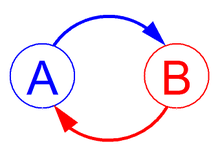 We've all been in this situation at one time or another. Late at night, a shortening number of hours before you need to be awake again, but there you are still huddled by your TV/monitor/handheld, gaming away. You're long past the point of pure, visceral enjoyment, but you still find yourself compelled to keep plugging away, even when that pesky rational side of your brain informs you that you really should stop. All too often, that rational side of your brain will be silenced by some justification that will seem all too flimsy and avoidable come the next, very tired, morning. So why do we find it so easy to keep playing?
We've all been in this situation at one time or another. Late at night, a shortening number of hours before you need to be awake again, but there you are still huddled by your TV/monitor/handheld, gaming away. You're long past the point of pure, visceral enjoyment, but you still find yourself compelled to keep plugging away, even when that pesky rational side of your brain informs you that you really should stop. All too often, that rational side of your brain will be silenced by some justification that will seem all too flimsy and avoidable come the next, very tired, morning. So why do we find it so easy to keep playing?It's because games have a few tricks up their sleeve when it comes to keeping you in that chair, eating away at your sleep hours. Tricks that they've honed through years of practice, often ripped from the depths of psychological research, all designed to keep you playing. So let's take a look at a few of them! Wouldn't that be nice?
1. The Infamous Skinner Box
 Back in the early 1930's, there was a gentleman named Burrhus Frederic Skinner, a graduate student at Harvard. Skinner was conducting experiments on operant conditioning, the idea that one could manipulate an organisms decisions, not just their reactions. One of his experiments involved placing an animal(normally a rat or a pigeon in a box called an Operant Conditioning Chamber, equipped with a button that would provide food when pushed.
Back in the early 1930's, there was a gentleman named Burrhus Frederic Skinner, a graduate student at Harvard. Skinner was conducting experiments on operant conditioning, the idea that one could manipulate an organisms decisions, not just their reactions. One of his experiments involved placing an animal(normally a rat or a pigeon in a box called an Operant Conditioning Chamber, equipped with a button that would provide food when pushed. This had two effects. First, it allowed him to join Pavlov and Schrodinger in the "Most Bizarre Use of Animal Subjects" category, but more importantly, it allowed him to map a direct correlation between the frequency of the reward, and how long the subject was willing to continue performing that action. To give away the ending, it turns out random rewards motivate the desired behavior for far, far longer than consistent or strictly scheduled rewards. And thus, this magical button-pushing, food-dispensing chamber was nicknamed "The Skinner Box".Then the games industry got a hold of this idea, and went to town with this. Most often, you will see this principle in place with MMO's such as World of Warcraft. Such games thrive on keeping players performing actions, long past the point where those actions are still "fun". The key to their strategy is a random reward system, where quests or enemies will only drop the best loot a small percentage of the time. The advantages to this are twofold. On one hand, it can keep a player going for much longer, each time hoping that it's their turn to be 'lucky'. And on the other hand, it increases the players sense of accomplishment for each random reward. That sense of accomplishment is certainly going to come to mind the next time they are in the middle of a four hour grind.
2. Never Letting You Say No
 What better way to keep you playing than to simply make it harder to put the game down? Such a simple concept, but it turns out to be extremely difficult to put in to practice. As it turns out, most games will have logical stopping points - a moment where it will seem natural to put the game down - simply based on their structure. This will often occur at the end of a story mission, when the question will go through your head about whether you should continue. Or in the case of MMOs, when you return to the mission hub after completing your "kill ten, retrieve twenty" check-list These types of games make it easy to put it down at certain moments, not so suited to the "Never Letting You Say No" method.
What better way to keep you playing than to simply make it harder to put the game down? Such a simple concept, but it turns out to be extremely difficult to put in to practice. As it turns out, most games will have logical stopping points - a moment where it will seem natural to put the game down - simply based on their structure. This will often occur at the end of a story mission, when the question will go through your head about whether you should continue. Or in the case of MMOs, when you return to the mission hub after completing your "kill ten, retrieve twenty" check-list These types of games make it easy to put it down at certain moments, not so suited to the "Never Letting You Say No" method.No, this is domain of online multiplayer, most obvious in a variety of first person shooters. The strategy most often employed is to have the player in another game before they can even wonder about turning it in. Let's use Team Fortress 2 as an example. The progression is quick. Upon the games completion, you'll view your stats for that round as the game wraps up. After that, a (relatively) short loading screen with accompanying lifetime stats to keep you distracted and then bam, you're right at the start of another game. It's much harder to pack it in when you're staring down the barrell at a fresh round, and Team Fortress 2 manages to keep you distracted just long enough to get you to that point.
3. Giving Your Habit a Jumpstart
 This is another staple of your MMORPG, the idea of giving you an extremely quick progression right from the word go, essentially jumpstarting your habit and drilling the reward system into your mind. If you look at any MMO, the first ten levels or so are incredibly easy to achieve. Generally you will reach level ten within a couple blocks of playtime, allowing you to have a taste for the experience, and gain the high that every player receives from progression. And not making you wait for that high is key to keeping you coming back.
This is another staple of your MMORPG, the idea of giving you an extremely quick progression right from the word go, essentially jumpstarting your habit and drilling the reward system into your mind. If you look at any MMO, the first ten levels or so are incredibly easy to achieve. Generally you will reach level ten within a couple blocks of playtime, allowing you to have a taste for the experience, and gain the high that every player receives from progression. And not making you wait for that high is key to keeping you coming back.It seems fairly self evident. If the first level took you ten hours to gain, most players would barely make it out fo the gate. Instead, the game slowly ramps up the length of time it takes for you to gain a level. So at first you may gain five levels in a sitting, and then three, and then one. Then you'll find yourself putting in more hours in a sitting to gain that next level, simply because you've been conditioned to think that this level progression is the sign of a successful sitting. I know I did.
On a similar note, notice how by the time you've left the training area, you'll likely have at least one nice, shiny piece of gear? Of course you do, effectively giving you a taste of an MMO's other key game mechanic: loot.
4. The Feedback Loop
 Life is all about the feedback loop, the jump from cause to effect or action to reward. In most instances where a reward is on the line, the feedback loop can be extremely long, lasting for days, months or even years. Things like "work hard so you can get paid in two weeks", or "go to school and get an education so you can eventually land a good job" are examples where the feedback comes long after the first action took place.
Life is all about the feedback loop, the jump from cause to effect or action to reward. In most instances where a reward is on the line, the feedback loop can be extremely long, lasting for days, months or even years. Things like "work hard so you can get paid in two weeks", or "go to school and get an education so you can eventually land a good job" are examples where the feedback comes long after the first action took place.Video Games fly straight in the face of this.
Few things in the world have a shorter feedback loop than your average video game. At the shortest, you might have a few seconds in between an action and the reward. At worst, you may be waiting twenty minutes until the end of the mission to get your reward. But the point is that games will rarely let you go too long before it makes you feel rewarded for your actions.
The best example of this is multiplayer in Call of Duty. The whole "fire guns, get kills" mechanic isn't the feedback that I'm generally referring to, players tend to take that for granted. But Call of Duty finds plenty of other ways to provide rewards. Kill streaks, prestige ranks, equipment unlocks, end game stats and Live achievements are all ways that CoD manages to let you know just how awesome you are, and it keeps you coming back for more.
Now, I'm not saying that any of these methods are particularly heinous(though the Skinner Box is a little manipulative...), but I've always found it interesting to look at some of the underlying concepts we may take for granted in video games. All that we have is food for that, and maybe, once in a while, we'll ask ourselves why we're still playing a certain game at 3am on a work night.

